The 2025 Tour de France route is a British fan's dream - how to watch the French Grand Tour
With eight stages in the north west of France, the men’s Tour de France will surely see a surfeit of union flags at the side of the road
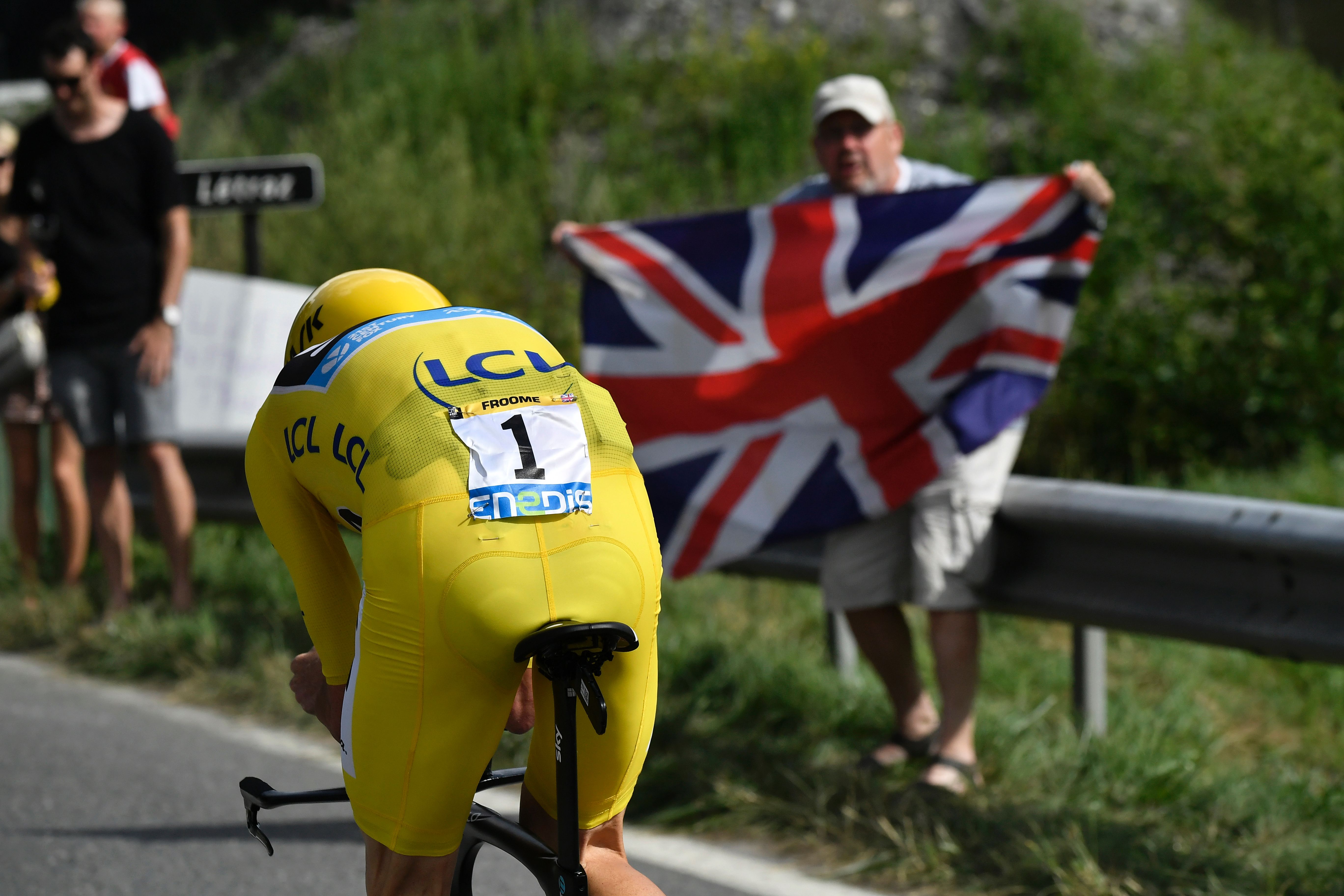

We already knew the 2025 Tour de France would start in Lille, just an hour on the Eurostar from London. However, last month's route announcement revealed that it is not just the opening that will be in reach of British fans, with the first eight stages all in the Hauts-de-France, Normandy, Brittany, and the Pays-de-la-Loire.
As a result, next year’s men’s Tour will be one of the easiest for Brits to visit in years, possibly the best since the Grand Départ in Normandy in 2016, when Mark Cavendish won the first stage, and with it the first yellow jersey of his career.
July 2025 might seem a long way in the distance, but in reality it is just eight months away, and will be with you quicker than you think. As a result, here is a guide to the key stages you should be trying to catch, or at least watch on TV next summer.
Stage two Lauwin-Planque to Boulougne-sur-Mer (209km) 5/07/25
Stage one might be a hop, skip and a jump away from the Eurostar in Lille, but it will likely end in a regulation bunch sprint. Stage two, meanwhile, is the kind of day which anything could happen on. There are four classified climbs, including a final punch to the finish; the terrain which might suit Tadej Pogačar perfectly. Happily, Boulougne-sur-Mer is also just the other side of the Channel, a half an hour drive or a two-hour cycle south of Calais, the perfect day out to watch an exciting Tour stage finish.
Where to stay?
If you’re going to do stage three to Boulogne, then you might as well stay for stage three in Dunkirk, also accessible by bike, car or train, and close to Calais and the ferry or Channel Tunnel. My tip would be Saint-Omer, almost equidistant between Boulougne and Dunkirk.
Get The Leadout Newsletter
The latest race content, interviews, features, reviews and expert buying guides, direct to your inbox!

Stage five Caen to Caen (33km) 9/07/25
A time trial is always a great way to see the whole race, and with this stage starting and finishing in the Norman town of Caen, the home of William the Conqueror, it is very accessible from the UK. You can get a ferry from Portsmouth straight to Caen, or you could go via Cherbourg, and experience the delights of Normandy. The flat 33km time trial shouldn’t open up too many gaps on the GC, but you might see an early triumph for TT world champion Remco Evenepoel. Everything will still be very tense.
Where to stay?
The next day begins in Bayeux, so it would be very worth basing yourself in the Calvados department. The region is well equipped for tourists, having been at the forefront of Anglo-French history, from the Norman Conquest to D-Day. Caen itself is a wonderful little city.
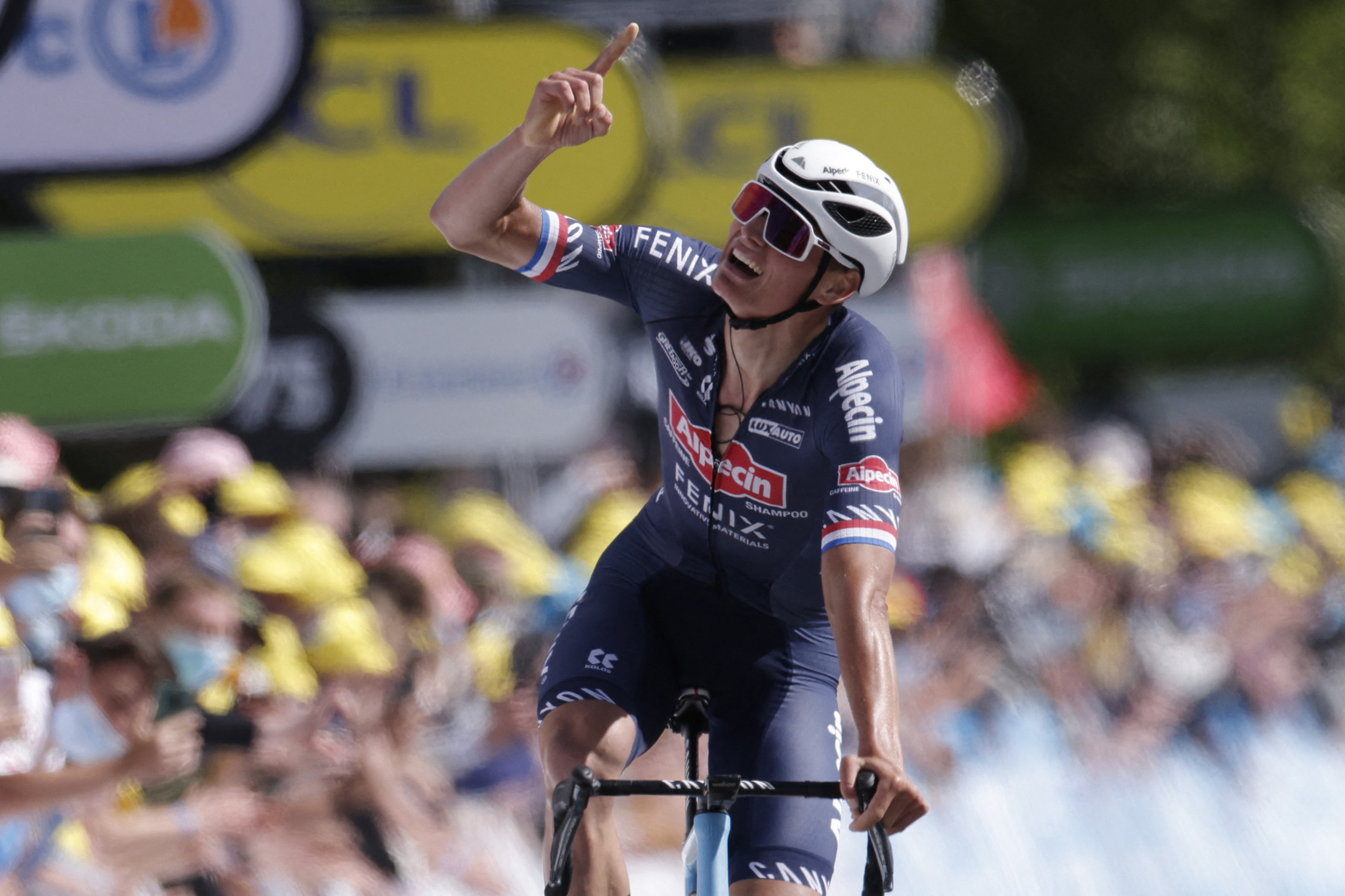
Stage seven Saint-Malo to Mûr de Bretagne (194km) 11/07/25
Another stage helpfully close to an Atlantic ferry port, the walled city of Saint-Malo is served by direct ferries from Portsmouth, Poole and Plymouth, and could be the perfect base for a bit of Brittany exploring. If you want to catch a stage start, and a guaranteed glimpse of the action, perhaps don’t go any further than Saint-Malo itself, but the Mûr de Bretagne is also very accessible, by car or by bike, but don’t expect to be able to get from the start to the finish during the stage. The Mûr is present in the race for the fifth time in the last fifteen years, and should provide the aggressive Pogačar more space to show his speed.
Where to stay?
With the next stage starting just down the N164 in Saint Méen-le-Grand, this might be the perfect opportunity to indulge in a bit of bikepacking, or find a nice Breton gite.
Stage 16 Montpellier to Mont Ventoux (172km) 22/07/25
This is obviously nowhere near the UK, but Mont Ventoux is possibly the easiest mountain to get to on this year’s Tour de France, with not much distance between the Giant of Provence and Montpellier or Marseille, both of which have airports served by British cities. It has been 12 years since a Tour stage last finished atop Ventoux, and so it will be time for the stars of this generation to tackle the tough climb.
Where to stay?
Avignon, down in the Rhône Valley, seems perfectly placed as a place to stay after a day out at the Tour, with its papal history and bridge to nowhere.
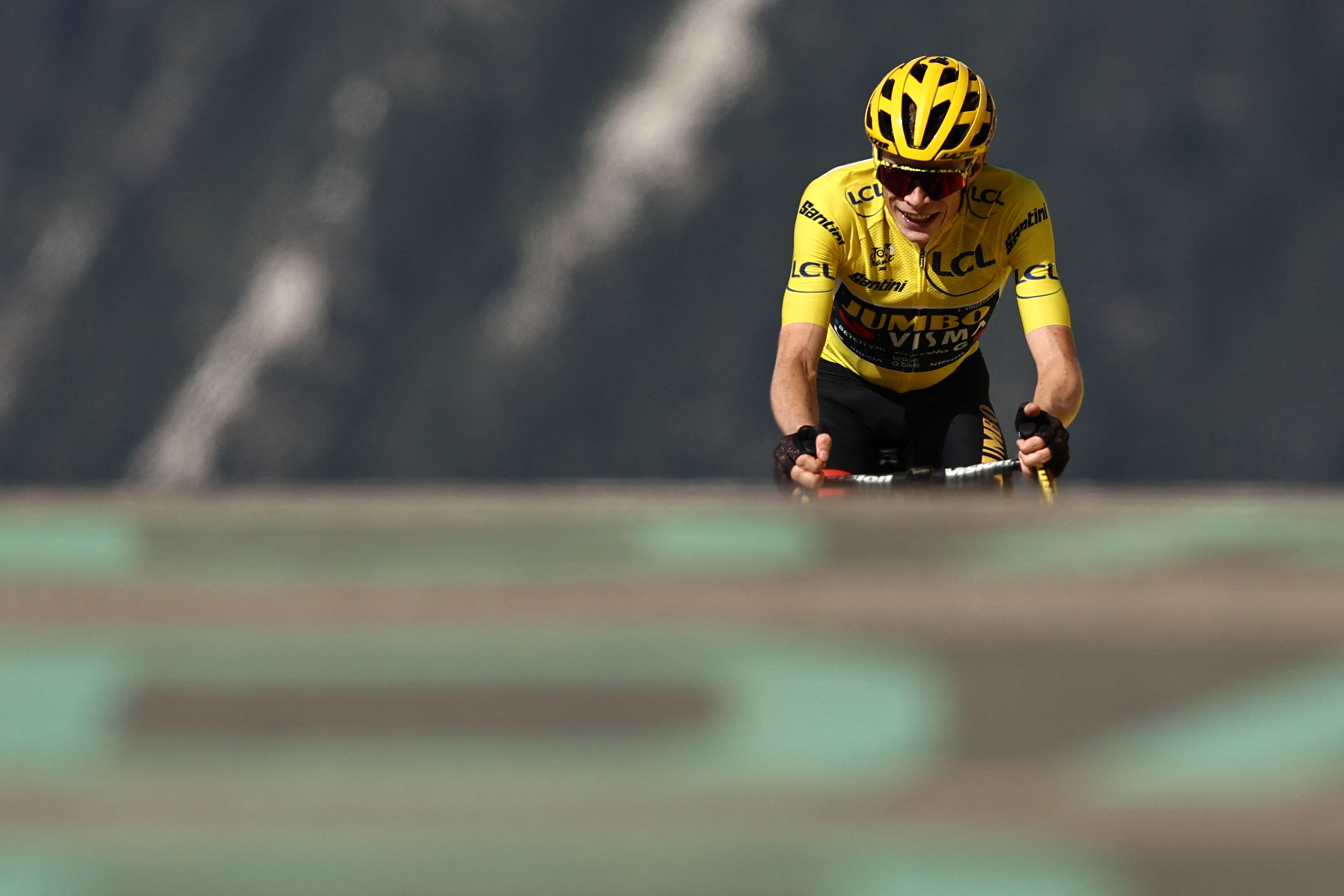
Stage 18 Vif to Courchevel/Col de la Loze (171km) 24/07/25
Two days later, the toughest day at the 2025 Tour de France will see over 5,500m of climbing in the Alps. Probably one of the trickiest places to get to across the three weeks, but Lyon really isn’t that far away, particularly if you can hire a car. Whether you make it up some of the monster climbs depends on your head for heights, but the views will obviously be incredible.
Where to stay?
A big tip from me - never Albertville. It will be much more worth your while going that bit extra and staying the night in Chambéry or Aix-les-Bains, if you make it down the mountains. If not, find an out-of-season ski lodge.
Pro reaction to the route
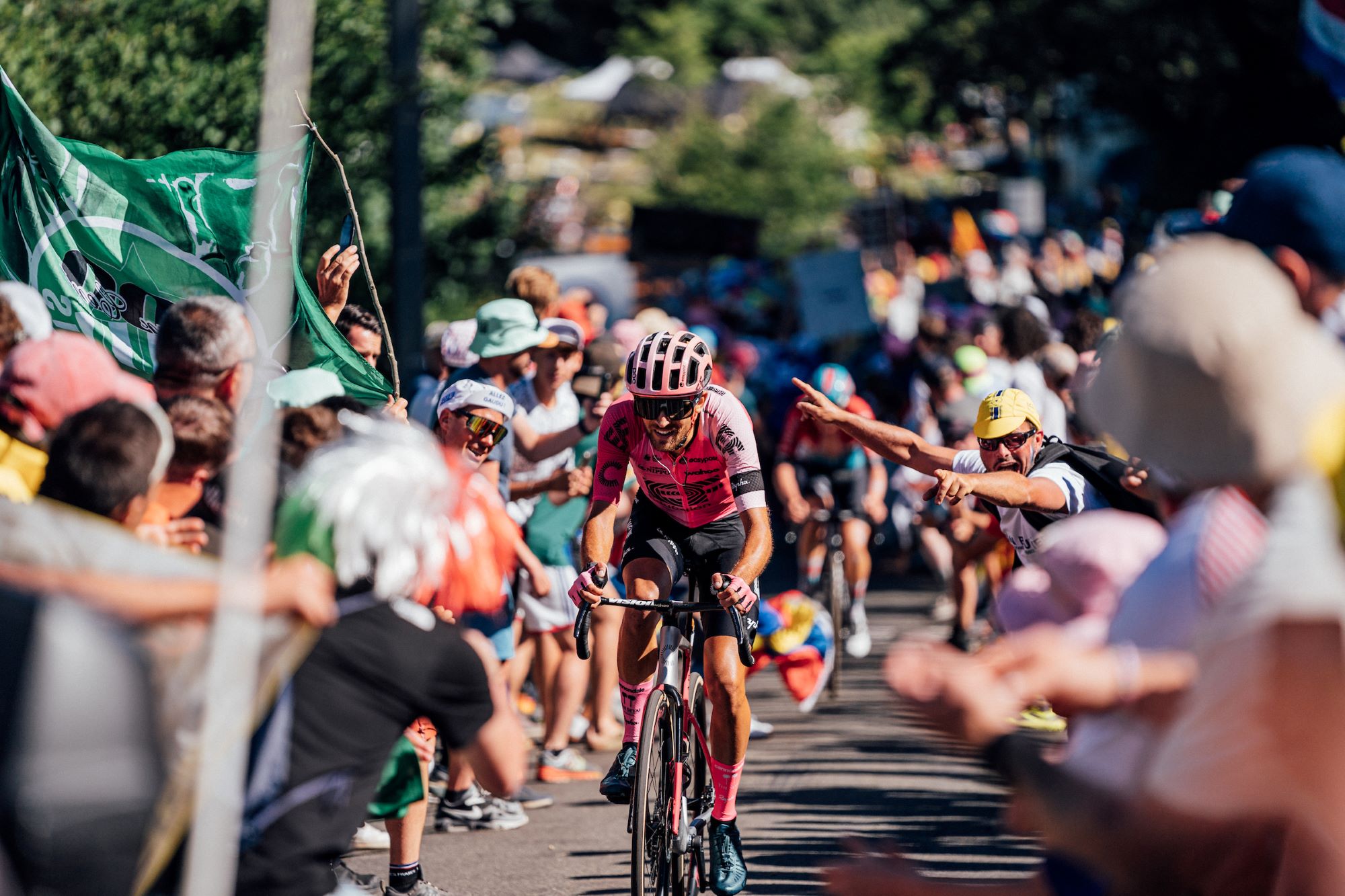
Speaking to Cycling Weekly last month, EF Education-EasyPost and former Tour de France rider James Shaw gave his thoughts on a challenging route.
“I think it’s good,” he said. “It’s good that it's finishing in Paris again. It felt a bit like the London Marathon not being in London before.
“The Ventoux finish will be cool. It opens up a breakaway day. Around the bottom of Ventoux. there's not much happening until you get to the climb, so it brings the race a lot closer. There will be breakaway guys, being chased by the GC riders, it’ll be an exciting final.
“With the start in the north, are we looking at [Jasper] Philipsen’s only opportunity to maybe where yellow? It might be a once in a career opportunity for him.
“It’s gone a bit back to the old style of the first week, with it being a little bit more dangerous,” he continued. “In the last couple of years we’ve seen GC days on day two or three, which has made the first week a lot safer. So is it going to be a bit more dangerous that first week. It will be interesting.
“When we look at the six or seven flat-ish days, we would have called them hilly 10 years ago. It’s not the same sport. You could argue that favours Pog [Tadej Pogačar] a little bit more. He’s also going to be pretty good on the Mûr de Bretagne. He’s head and shoulders above everyone else at the minute, even on the flat stuff, he’s good at Flanders as well, and you don’t see [Jonas] Vingegaard there.”

Thank you for reading 20 articles this month* Join now for unlimited access
Enjoy your first month for just £1 / $1 / €1
*Read 5 free articles per month without a subscription

Join now for unlimited access
Try first month for just £1 / $1 / €1

Adam is Cycling Weekly’s news editor – his greatest love is road racing but as long as he is cycling, he's happy. Before joining CW in 2021 he spent two years writing for Procycling. He's usually out and about on the roads of Bristol and its surrounds.
Before cycling took over his professional life, he covered ecclesiastical matters at the world’s largest Anglican newspaper and politics at Business Insider. Don't ask how that is related to riding bikes.
-
 Trek, State and Specialized raise bike prices while other brands limit US releases — Is this just the beginning?
Trek, State and Specialized raise bike prices while other brands limit US releases — Is this just the beginning?As tariffs hit, the bike industry is forced to adapt, whether through price increases, limited releases, or a restructuring of supply chains
By Anne-Marije Rook
-
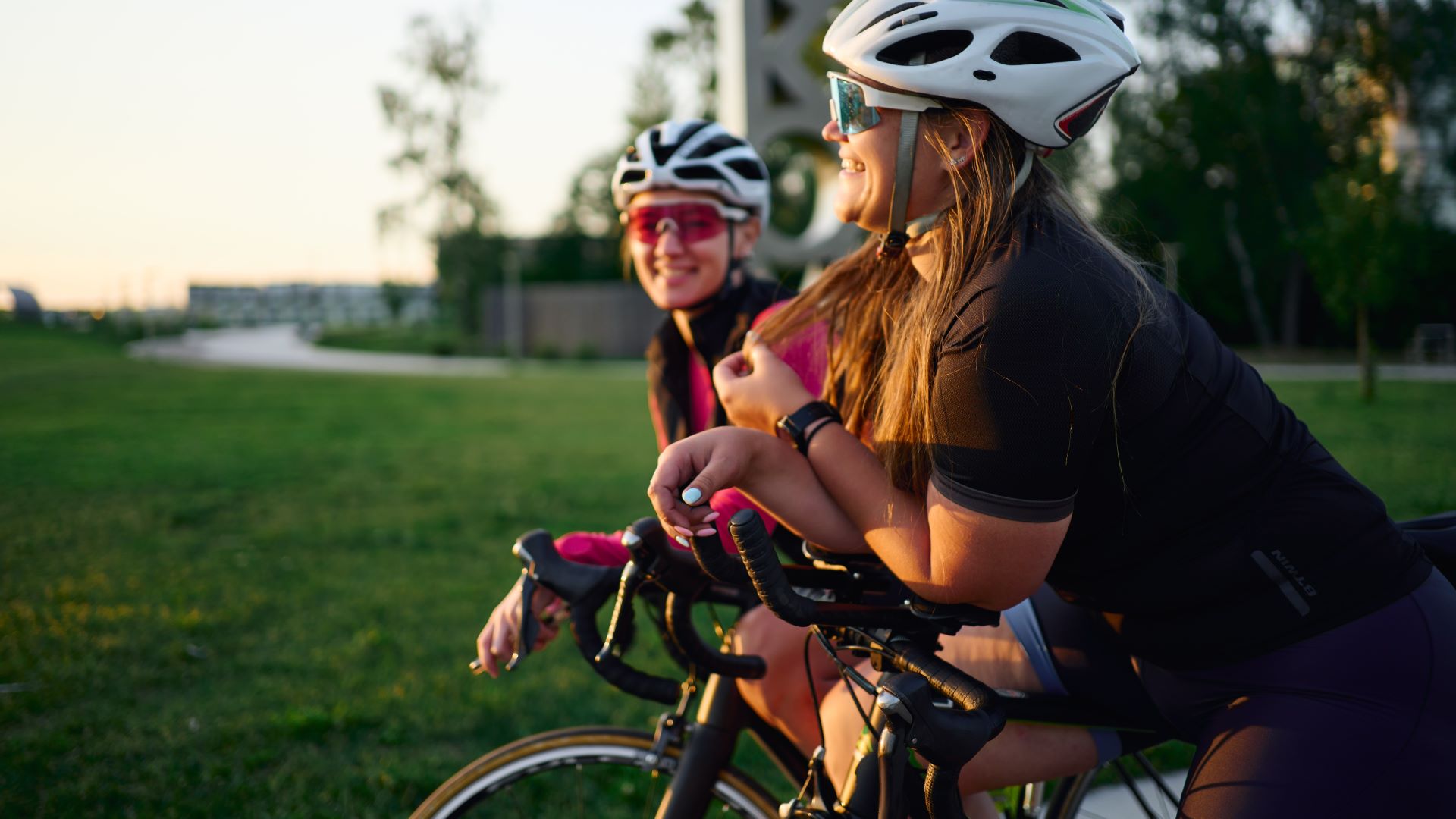 How I got my non-cyclist friend hooked on riding bikes — and how you can, too
How I got my non-cyclist friend hooked on riding bikes — and how you can, tooWith a little bit of gentle guidance, “bikes aren’t my thing” can turn into “when’s our next ride?”
By Marley Blonsky